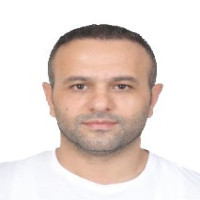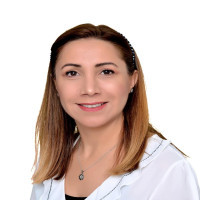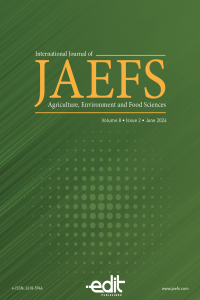> Why Submit to JAEFS?
> Bibliographic Informations
> Price Policy
> Ethical Principles Flow Chart
> Publication Ethics
> Privacy Policy
> Archive Policy
> Open Access Policy
> Copyright Policy
> Special Issue Policy
ETHICAL PRINCIPLES AND PUBLICATION POLICY
The International Journal of Agriculture, Environment and Food Sciences (JAEFS) is a scientific, open access periodical published in accordance with independent, unbiased, and double-blinded peer-review principles. International Journal of Agriculture, Environment and Food Sciences is published quarterly on March, June, September, and December and the publication language of the journal is English.
The scope of the journal includes but not limited to agriculture, environment and food Sciences, agronomy, agricultural engineering, biotechnology, animal science, plant science, horticulture, crop science, plant breeding, plant fertilization, plant protection, soil science, agricultural economics, sustainable agriculture, aquaculture, biological engineering, food science, food health and nutrition, husbandry, irrigation and water management, land use, entomology, environmental science, waste management, molecular biology, organic agriculture, plant physiology, plant breeding, veterinary.
Authors retain the copyright of their published work in the International Journal of Agriculture, Environment and Food Sciences.
EDITORIAL AND PUBLICATION PROCESS
Originality, high scientific quality, and citation potential are the most important criteria for a manuscript to be accepted for publication. Manuscripts submitted for evaluation should not have been previously presented or already published in an electronic or printed medium. The journal should be informed of manuscripts that have been submitted to another journal for evaluation and rejected for publication. The submission of previous reviewer reports will expedite the evaluation process. Manuscripts that have been presented in a meeting should be submitted with detailed information on the organization, including the name, date, and location of the organization.
PEER REVIEW PROCESS
Manuscripts submitted to International Journal of Agriculture, Environment and Food Sciences will go through a double-blind peer-review process. Each submission will be reviewed by at least two external, independent peer reviewers who are experts in their fields in order to ensure an unbiased evaluation process. The editorial board will invite an external and independent editor to manage the evaluation processes of manuscripts submitted by editors or by the editorial board members of the journal. The Editor in Chief is the final authority in the decision-making process for all submissions.
The relevant duties and expectations of all parties involved in the publishing process including editors, reviewers, authors, and others are required to adhere to the publication ethics and publication malpractice statements defined below.
PUBLICATION ETHICS AND PUBLICATION MALPRACTICE STATEMENT
PUBLICATION AND AUTHORSHIP
All contributions conforming to the aim and scope of the International Journal of Agriculture, Environment and Food Sciences can be found here:
https://dergipark.org.tr/en/pub/jaefs/aim-and-scope. The authors are required to provide a statement about the submission describing how the manuscript fits the journal content. All manuscript should be written and organized following the guide for authors:
https://dergipark.org.tr/en/pub/jaefs/writing-rules. Manuscripts submitted to this journal must not be under simultaneous consideration by any other journal. Manuscripts submitted to this journal should not have been published elsewhere in identical or substantially similar forms.
RESPONSIBILITIES OF THE PUBLISHER
Publishing Behavior and Unethical Broadcast Handling
The publisher takes all necessary precautions for alleged or proven scientific misconduct, fraudulent publication, plagiarism, or close collaboration with the editors to clarify the situation and to amend the article in question includes clarification or withdrawn of the affected work. The publisher, together with the editors, shall take reasonable steps to identify and prevent the publication of the manuscript where research misconduct has occurred, and under no circumstances encourage such misconduct or knowingly allow such misconduct to take place.
Involvement and Investigations
International Journal of Agriculture, Environment and Food Sciences is responsible for responding to all allegations or suspicions of manuscripts misconduct raised by readers, reviewers, or other editors. Potential plagiarism or duplicate/redundant publication will be assessed by the journal. In other cases, the journal may request an investigation by the institution or other appropriate bodies. Every reported act of unethical publishing behavior must be looked into, even if it is discovered years after publication.
RESPONSIBILITIES OF THE EDITORS
The Editorial Board of the journal handles all appeal and complaint cases within the scope of Committee on Publication Ethics (COPE) guidelines. In such cases, authors should get in direct contact with the editorial office regarding their appeals and complaints. When needed, an ombudsperson may be assigned to resolve cases that cannot be resolved internally. The Editor in Chief is the final authority in the decision-making process for all appeals and complaints.
Publication Decisions
Editors will ensure that all submissions go through the fast and fair peer-review and editorial procedures. Editors take full responsibility for everything published in the International Journal of Agriculture, Environment and Food Sciences, hence the acceptance or rejection of the submitted work is Editor’s sole decision.
The Principle of Neutrality
Editors should evaluate manuscripts on originality, quality, and intellectual content and should not be affected by race, gender, sexual orientation, religious belief, ethnic origin, citizenship, political philosophy, or any other influences. Editors should express the concern and act immediately if they receive inconclusive evidence of research or publication misconduct by the authors.
Confidentiality
The Editor and any other editorial staff must not disclose any information about a submitted manuscript to anyone other than the corresponding author, reviewers, potential reviewers, other editorial advisers, and the publisher.
Disclosure and Conflicts of Interest
Unpublished materials disclosed in a submitted manuscript will not be used by the ort h or the members of the editorial board for their research purposes without the author’s explicit written consent. Information or ideas obtained through peer review must be kept confidential and not used for personal advantage. Editors should require all contributors or authors to disclose relevant conflicts of interest. If conflicts of interest are revealed after publication, corrections must be published or other appropriate actions should be taken, such as the publication of a retraction or expression of concern.
ETHICAL RESPONSIBILITIES OF EDITORS AND SECTION EDITORS
The chief editor(s) and section editors strive to meet the information needs of the referees, author(s), researchers, practitioners, and readers, to provide feedback when necessary, and to act by the principles of clarity in matters that require correction and explanation in the publication process.
The chief editor(s) and section editors pay attention to the originality of the articles and their contribution to the scientific literature, readers, researchers, and practitioners when deciding whether to publish the articles.
While making a positive or negative decision about the articles, the chief editor(s) and the section editors consider the original value of the articles, their contribution to the section, the validity and reliability of the research method, the clarity of the expression, and the purpose and scope of the journal.
The chief editor/s and section editors take the submitted articles to the preliminary evaluation stage as long as they do not have significant problems, consider positive referee suggestions, and only change the decisions made by the previous chief editor/s and section editors if there are serious problems.
Chief editor(s) and section editors implement the policies of blind refereeing and evaluation process, which are among the journal publication policies, keep the referees' identities confidential, and ensure that each article is evaluated impartially and in due time.
The chief editor(s) choose the section editors of the manuscript, and the section editors select the referees taking into account their sections of expertise, and support the impartial and independent evaluations.
The editor-in-chief(s) and the section editors consider whether there is a conflict of interest between the editors, referees, and author(s) for the unbiased evaluation of the article.
Editor-in-chief(s) and section editors are searching for a wide range of reviewers and their constant updating.
Editor-in-chief(s) and section editors block reviews that do not follow academic etiquette and are unscientific.
Editor-in-chief(s) and section editors ensure that the journal publication processes are by publication policies and guidelines, inform those in charge of the developments in publication policies, and prepare a training program when necessary.
The chief editor(s) and section editors communicate effectively with everyone involved in the publication process and organize meetings at regular intervals.
Editor-in-chief(s) and section editors protect personal data in the reviewed articles; they protect the individual data of authors, referees, and readers.
Editor-in-chief(s) and section editors; they pay attention to the protection of human and animal rights in their articles, they care about documenting the explicit consent of the participants of the article, they reject the article when they do not have the approval of the ethics committee for the participants of the article, and permission for experimental research.
Editor-in-chief(s) and section editors; take action against misconduct. When there are complaints about misconduct, he makes an objective investigation and shares the relevant findings.
Editor-in-chief(s) and section editors ensure that errors, inconsistencies, or misdirection in articles are corrected.
Editor-in-chief(s) and section editors protect the intellectual property rights of the published articles and defend the rights of the journal and the author(s) in case of infringement. In addition, they take the necessary measures to ensure that the content of the published articles does not violate the intellectual property rights of other publications; They perform the authenticity-similarity check.
Editor-in-chief(s) and section editors take into account the consistent criticisms of the articles published in the journal and give the right to reply to the author(s) of the criticized articles.
Editor-in-chief(s) and section editors also consider studies with negative results.
Editor-in-chief(s) and section editors examine the complaints submitted to the journal and make the necessary explanations.
Editor-in-chief(s) and section editors cannot be appointed work editors for articles written by themselves, their family members, or their department colleagues and cannot make any decisions about the work. For such works, the ordinary operation of the journal is carried out by a different editor who does not have a conflict of interest, and the process continues without including the editor with a conflict of interest in the evaluation process in the journal.
RESPONSIBILITIES OF THE REVIEWERS
Contribution to Editorial Decisions
Peer review assists the editor making editorial decisions and may also assist the author(s) for improving the manuscript through the editorial communications. International Journal of Agriculture, Environment and Food Sciences to declare that all scholars who wish to contribute to the scientific process must do a fair share of reviewing.
Promptness
Any selected reviewer who feels unqualified to review the research reported in a manuscript or knows that its prompt review will be impossible should notify the editor and excuse himself from the review process.
Confidentiality
Any manuscripts received for review must be treated as confidential documents by the referees. Reviewers must not be shown or discussed any manuscripts received for review with others except as authorized by the Editor-in-Chief, who would only do so under exceptional and specific circumstances. This situation also applies to arbitrators who do not accept the review invitation.
Standards of Objectivity
Reviews should be conducted objectively. Personal criticism of the author is inappropriate. Reviewers should express their views clearly with supporting arguments.
Acknowledgment of Sources
Reviewers should identify relevant published work that has not been cited by the authors. Any statement that an observation, derivation or argument had been previously reported should be accompanied by the relevant citation. A reviewer should also call to the editor’s attention any substantial similarity or overlap between the manuscript under consideration and any other published paper of which they have personal knowledge.
Disclosure and Conflict of Interest
Privileged information or ideas obtained through peer review must be kept confidential and not used for personal advantage. This situation also applies to arbitrators who do not accept the review invitation. Reviewers should not consider manuscripts in which they have conflicts of interest resulting from competitive, collaborative, or other relationships or connections with any of the authors, companies, or institutions connected to the manuscript and this situation should immediately inform the relevant editor.
RESPONSIBILITIES OF AUTHORS
The authors are expected to submit researches that comply with the general ethical principles which include; scientific integrity, objectivity, collegiality, data integrity, institutional integrity and social responsibility.
Being an author of a scientific article mainly indicates a person who has a significant contribution to the article and shares the responsibility and accountability of that article. To be defined as an author of a scientific article, researchers should fulfill below criteria:
• Making a significant contribution to the work in all or some of the following phases: Research conception or design, acquisition of data, analysis and interpretation.
• Drafting, writing or revising the manuscript.
• Agreeing on the final version of the manuscript and the journal which it will be submitted
• Taking responsibility and accountability of the content of the article.
• Outside the above mentioned authorship criteria, any other form of specific contribution should be stated in the Acknowledgement section.
Reporting standards
Authors are expected to have made reasonable attempts to check and validate results submitted to the journal for publication. This should be followed by the statement to the Editor that all data are real and authentic. Authors of research reports should present an accurate account of the work performed as well as an objective discussion of its significance. Underlying data should be represented accurately in the manuscript. A manuscript should contain sufficient detail and references to permit others to replicate the work. Authors are required to provide information about ethical aspects of research, particularly where research involves human or animal participants or the use of biological material. Fraudulent or knowingly inaccurate statements constitute unethical behavior and are unacceptable.
Originality and Plagiarism
Authors could be asked to provide the raw data of their study together with the manuscript for editorial review and should be prepared to make data publicly available if practicable. In any event, authors should ensure accessibility of such data to other competent professionals for at least ten years after publication (preferably via an institutional or subject-based data repository or other data center), provided that the confidentiality of the participants can be protected and legal rights concerning proprietary data do not preclude their release.
Authors should ensure that they have written and submitted only entirely original Works, and if they have used the work and/or words of others, this should be appropriately cited. Authors will submit only entirely original works, and will appropriately cite or quote the work and/or words of others. Publications that have been influential in determining the nature of the reported work should also be cited. Plagiarism such as copying another’s manuscript as the author’s own, paraphrasing substantial parts of another’s paper (without attribution) or claiming results from research conducted by others and in all its forms constitutes unethical publishing behavior and is unacceptable.
Even if you are the author of the phrases or sentences, the text should not have unacceptable similarity with the previously published data. When you are discussing others' (or your own) previous work, please make sure that you cite the material correctly in every instance.
Authors are strongly recommended to avoid any form plagiarism and ethical misconduct that are exemplified below.
1) Self- plagiarism (text-recycling): Overlapping sections or sentences with the author’s previous publications without citing them. Even if you are the author of the phrases or sentences, the text should not have unacceptable similarity with the previously published data.
2) Salami slicing: Using the same data of a research into several different articles. Reporting the same hypotheses, population, and methods of a study is into different papers is not acceptable.
3) Data Fabrication: It is the addition of data that never occurred during the gathering of data or the experiments. Results and their interpretation must be based on the complete data sets and reported accordingly.
4) Data Manipulation/Falsification: It means manipulating research data with the intention of giving a false impression. This includes manipulating images (e.g. micrographs, gels, radiological images), removing outliers or ‘inconvenient’ results, changing data points, etc.
Manuscripts submitted to the International Journal of Agriculture, Environment and Food Sciences should be original and must not be plagiarized. Every submitted article is checked for plagiarism through iThenticate or similar software. If similarity index (SI) of the article is above 24%, it is sent back to the corresponding author to revise it and bring its SI below 24%, failure of which will result in rejection of article at the very first step. If plagiarism is proved after the publication of the article, that article will be immediately withdrawn and removed from the website and the concerned authors will be considered ineligible for publication of their articles in the International Journal of Agriculture, Environment and Food Sciences for five years.
Acknowledgment of Sources
Authors should ensure that they have properly acknowledged the work of others, and should also cite publications that have been influential in determining the nature of the reported work. Information obtained privately (from the conversation, correspondence, or discussion with third parties) must not be used or reported without explicit, written permission from the source. Authors should not use information obtained in the course of providing confidential services, such as refereeing manuscripts or grant applications unless they have obtained the explicit written permission of the author(s) of the work involved in these services.
Authorship of the Paper
Author(s) who meet these authorship criteria should be listed in the manuscript as they must be able to take public responsibility for the content. Firstly, the author(s) made significant contributions to the conception, design, execution, data acquisition, or analysis/interpretation of the study. Secondly, the author(s) drafted the manuscript or revised it critically for important intellectual content. Thirdly author(s) have seen and approved the final version of the paper and agreed to its submission for publication. All other persons who made substantial contributions to the work reported in the manuscript (such as technical help, writing and editing assistance, general support) but who do not meet the criteria for authorship must not be listed as an author but should be acknowledged in the “Acknowledgements” section after their written permission has been obtained. The corresponding author should ensure that all appropriate co-authors (according to the above definition) and no inappropriate co-authors are included in the author list and verify that all co-authors have seen and approved the final version of the manuscript and agreed to its submission for publication.
Multiple, Redundant or Concurrent Publication
In general, a manuscript describing essentially the same research should not be published in more than one journal. Submitting the same manuscript to more than one journal constitutes unethical publishing behavior and is unacceptable.
Manuscripts that have been published as copyrighted material elsewhere cannot be submitted. Additionally, manuscripts under review by the journal should not be resubmitted to copyrighted publications. However, by submitting a manuscript, the author(s) retains the rights of the published material.
Disclosure and Conflicts of Interest and Financial Support
Authors should—at the earliest stage possible (generally by submitting a disclosure form at the time of submission and including a statement in the manuscript)—disclose any conflicts of interest that might be construed to influence the results or their interpretation in the manuscript. Examples of potential conflicts of interest that should be disclosed include financial ones such as honoraria, educational grants or other funding, participation in speakers’ bureaus, membership, employment, consultancies, stock ownership, or other equity interest, and paid expert testimony or patent-licensing arrangements, as well as non-financial ones such as personal or professional relationships, affiliations, knowledge or beliefs in the subject matter or materials discussed in the manuscript. All sources of financial support for the work should be disclosed (including the grant number or other reference number if any).
Hazards and Human or Animal Subjects
If the work involves chemicals, procedures, or equipment that have any unusual hazards inherent in their use, the authors must identify these in the manuscript. If the work involves the use of animals or human participants, the authors should ensure that all procedures were performed in compliance with relevant laws and institutional guidelines and that the appropriate institutional committee(s) has approved them; the manuscript should contain a statement to this effect. Authors should also include a statement in the manuscript that informed consent was obtained for experimentation with human participants. The privacy rights of human participants must always be preserved.
Peer Review
Authors are obliged to participate in the peer-review process and cooperate fully by responding promptly to editors’ requests for raw data, clarifications, and proof of ethics approval, patient consents, and copyright permissions. In the case of the first decision of "revisions necessary", authors should respond to the reviewers’ comments systematically, point by point, and in a timely manner, revising and re-submitting their manuscript to the journal by the deadline given.
Fundamental Errors in Published Works
When authors discover significant errors or inaccuracies in their published work, they should promptly notify the journal’s editors or publishers and cooperate with them to either correct the paper in the form of an erratum or to retract the paper. If the editors or publisher learns from a third party that a published work contains a significant error or inaccuracy, then the authors should promptly correct or retract the paper or provide evidence to the journal editors of the correctness of the paper.
Data Access and Retention
Authors may be asked to provide the raw data of their study together with the manuscript for editorial review and should be prepared to make the data publicly available if practicable. In any event, authors should ensure accessibility of such data to other competent professionals for at least ten years after publication (preferably via an institutional or subject-based data repository or other data center), provided that the confidentiality of the participants can be protected and legal rights concerning proprietary data do not preclude their release. Authors should only submit papers only on work that has been conducted in an ethical and responsible manner and that complies with all relevant legislation.
DISCLAIMER
Statements or opinions expressed in the manuscripts published in the International Journal of Agricultural, Environmental and Food Sciences, reflect the views of the author(s) and not the opinions of the editors, the editorial board, or the publisher; the editors, the editorial board, and the publisher disclaim any responsibility or liability for such materials. The final responsibility regarding the published content rests with the authors.
APPEALS AND COMPLAINT
In case of an unethical situation regarding an article in the International Journal of Agricultural, Environmental and Food Sciences, which does not comply with the ethical principles regarding editors, referees and authors, or is in the process of evaluation, early viewing or publication, authors should get in direct contact with the editorial office (
editor@jaefs.com) regarding their appeals and complaints.
In the event of alleged or suspected research misconduct, e.g., plagiarism, citation manipulation, and data falsification/fabrication, an unethical situation, the Editorial Board will follow and act according to
Committee on Publication Ethics (COPE) flowcharts. When needed, an ombudsperson may be assigned to resolve claims that cannot be resolved internally. The Editor in Chief is the final authority in the decision-making process for all appeals and complaints.





























